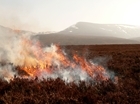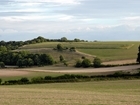GWCT News Blog
-

in:
GWCT News Blog
under:
GWCT Scotland
, Policy
The GWCT welcomes the amendment to muirburn legislation as it removes a provision that was not based on scientific evidence. It is our hope that the amended legislation will facilitate carrying out legal muirburn as a conservation tool with vital benefits to blanket-bog management and carbon sequestration.
-

in:
GWCT News Blog
under:
GWCT Scotland
On Monday 26 January 2026, GWCT Scotland sent an open letter to the Scottish Minister of Agriculture and Connectivity, Jim Fairlie MSP, which sets out our views on muirburn licensing and peatland management in the context of the Wildlife Management and Muirburn (Scotland) Act 2024.
-

in:
GWCT News Blog
Across the globe, thousands of people are quietly helping to shape the future of conservation, not through grand gestures, but by taking part in something simple, powerful and increasingly essential: citizen science.
-

in:
GWCT News Blog
under:
Big Farmland Bird Count
, Allerton Project
2026 sees the GWCT’s Big Farmland Bird Count return to its spiritual home of the Allerton Project, the GWCT’s research and demonstration farm on the Leicestershire-Rutland border, where it was originally launched in 2014.
-

in:
GWCT News Blog
under:
Big Farmland Bird Count
, GWCT Scotland
In order to support Scottish participants taking part, the GWCT will be running two free bird ID sessions. These workshops will provide you with the skills required to identify birds you may encounter during the count and how to record them, and will be followed by a short walk to practice your new skills.
-

in:
GWCT News Blog
In the latest episode of the Countryslide podcast the GWCT's Dr Alastair Leake and director of Schöffel Country Marcus Janssen joined Richard Prideaux and Callum McInerney-Riley to discuss the launch of the 2026 Schöffel Countryside Awards in partnership with the GWCT.
-

-

in:
GWCT News Blog
Having grown up on a smallholding further south in the Pennines, as well as having some prior experience grouse beating, I arrived in Teesdale already with a keen interest in upland landscapes. As such, I feel so privileged to be on a placement which actively conducts research into upland management and enables me to expand my own understanding in so many areas.
-

in:
GWCT News Blog
As we move into the heart of the pheasant season, the next few weeks often offer the finest shooting of the year. But before you settle back into the rhythm of midwinter days, it’s worth considering one simple question: are your birds performing as well as they should?
-

in:
GWCT News Blog
under:
GWCT Wales
, Nature
Fungi flourished in more ways than one in 2025, with more global policies supporting the kingdom worldwide, as well as a booming year for fruiting bodies. Despite all this fungal success, there is still so much to learn and understand about their biology.
Get the Latest News & Advice
Join over 100,000 subscribers and stay updated on our latest advice, research, news and offers.
*You may change your mind any time. For more information, see our Privacy Policy.